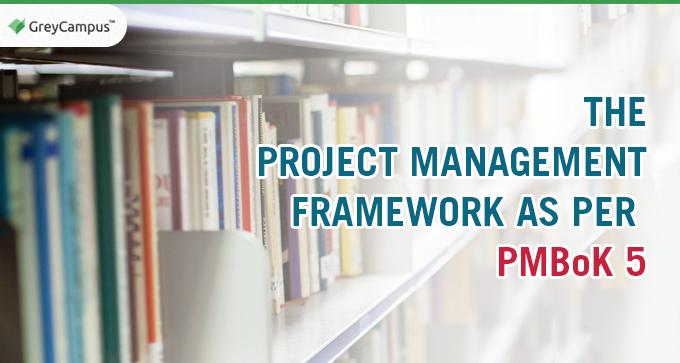The Project Management Framework as per PMBoK5
The PMP exam hosted under the governing body known as the Project Management Institute (PMI) follows a standardized framework which is explained in expansive detail by the Project Management Body of Knowledge 5th Edition (PMBoK 5). The framework aims at building an understanding about the methodology of project management and this framework is held constant throughout companies in most major industries. There are very good reasons why this is the case.
The framework firstly defines all the roles of a project team and gives examples as to what typical projects are such as designing a new bridge, developing a new drug and building and designing a new range of automobiles. The size and scope of the project may vary but the point is that the methodology to successfully manage the project will be the same. This sets a level of consistency throughout the organization adding control and precision to the process and its result.
Since everybody is on the page in the project team there is more collaboration as teammates know exactly what is expected of them in regards to the project and the role within it. A key component of any team endeavor is the communication between different members within the team. In a team, you often have members from different backgrounds, departments and levels of intellect but they are still all equally important in the project team because they are all aligned in the goals to be achieved for the completion of the project. Their responsibilities and due dates are effectively conveyed to them thanks to the level of interaction demanded by the framework. Another argument in favor of the framework is the possibility of continuity it provides to organizations; if the project manager changes unexpectedly, another PMP can take his place and continue directing the team in the same fashion because the approach and process is the same. Different problems and requirements plague each project but these are streamlined using the framework.
The project management framework sheds light on many important aspects of the project such as:
1. Tripe constrain theory (constraints being scope, schedule and resources)
2. Project lifecycle
3. Project phases
4. Project stakeholders
5. Project selection methods
6. Project management process groups
7. Knowledge areas
Study materials for all of these topics are available in the PMBoK 5th Edition study guide which is a mandatory book to work on in preparation to take the PMP exam. There is a thin line between theory and practice when it comes the project management framework and this makes the PMP certification a very important one to possess as individuals who are certified PMPs add a great deal of structure and direction to the company.
Author : Lisa Findlay
